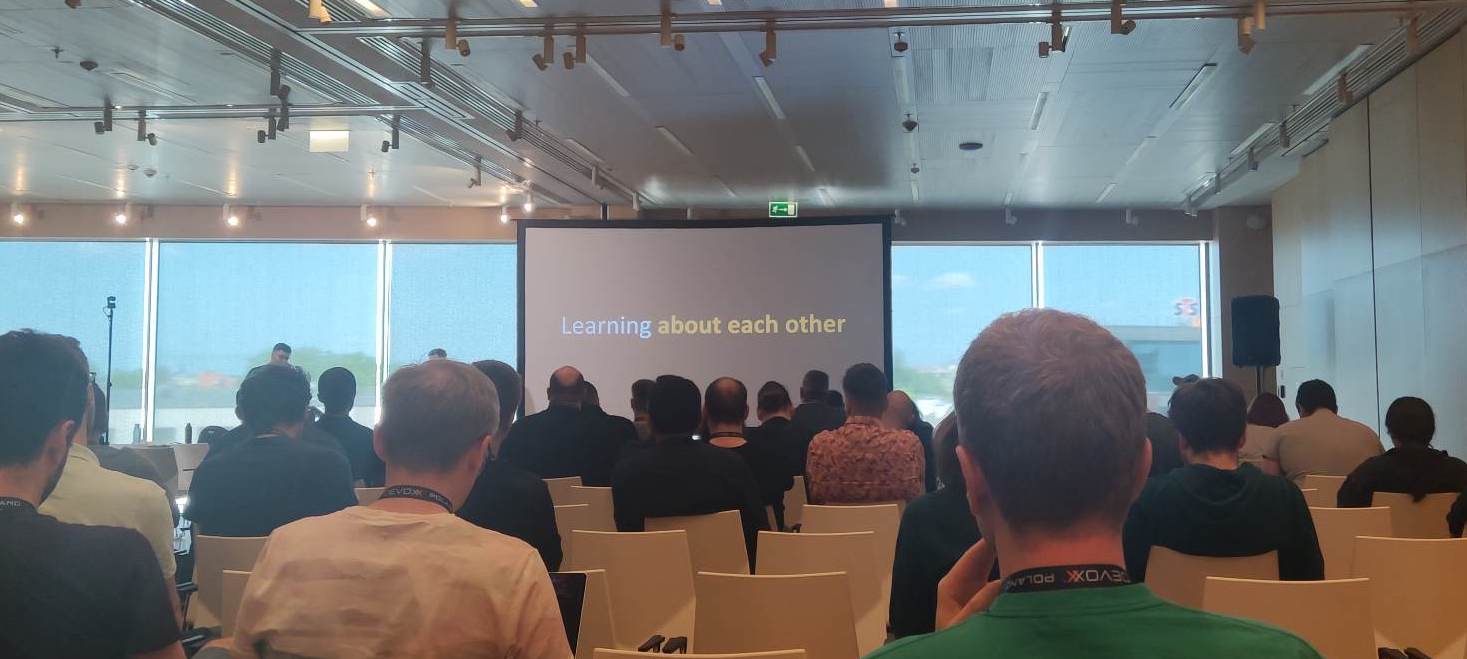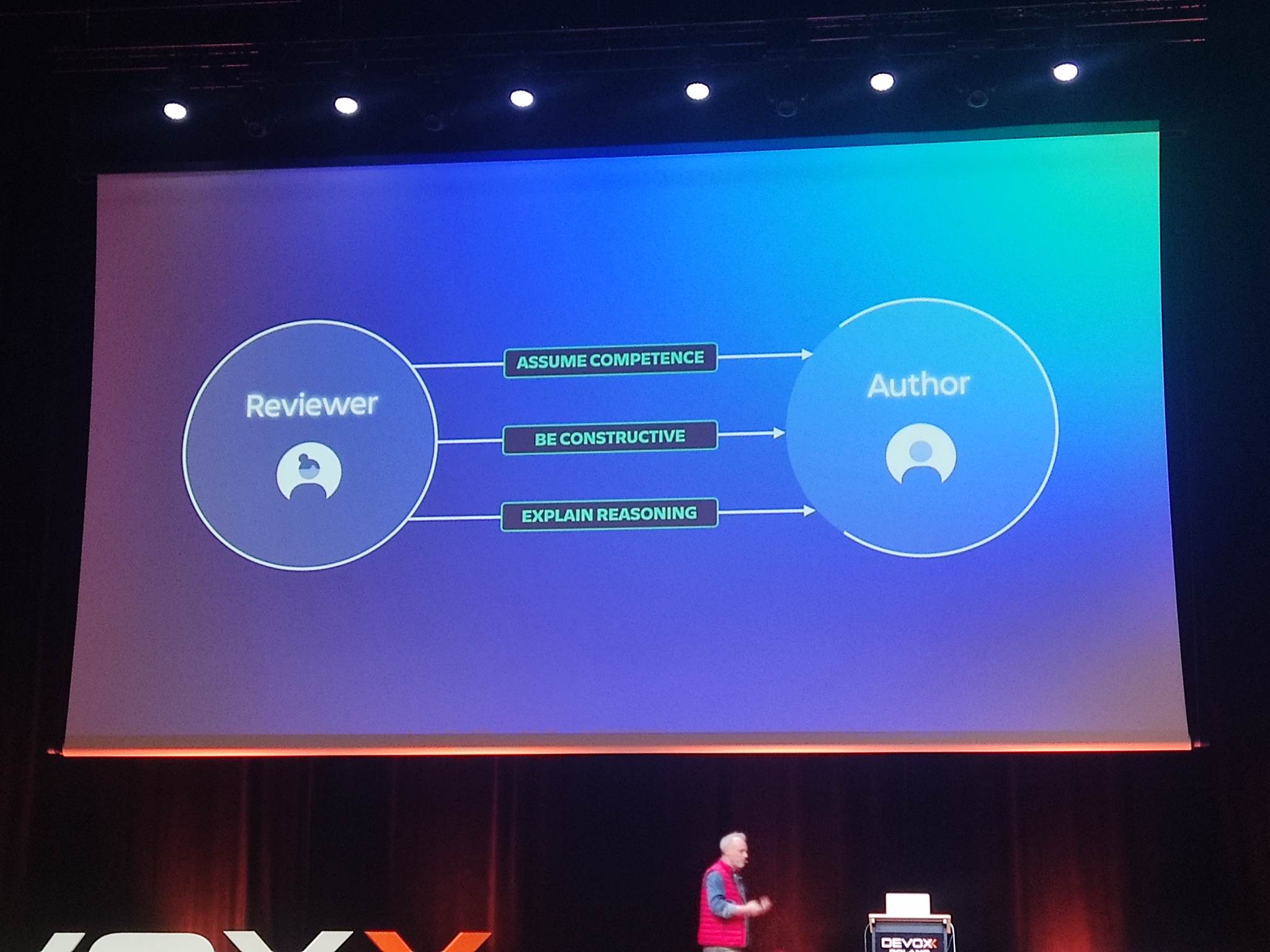5 soft skills you can learn at conferences
(Sorry for a clickbait article name, naming articles is even harder than naming variables)
It has been a long time since my last post. Many things have happened. For some reason, spring is always the season for conferences.
Today, I want to write something different from my usual content. Typically, I prefer to keep my posts highly technical, focusing solely on frameworks, languages, and programming. Working with code brings me immense joy, and I have no doubt about that. However, in today’s post, I want to describe what you can learn by attending conferences, with a specific focus on developing soft skills.

Lone wolf programmer
In pop culture, programmers are often portrayed as lone wolves - individuals who possess the ability to create anything, hack into any system, or solve every problem by themselves. (Let’s consider the first Jurassic Park as an exception to this stereotype.) Throughout the history of programming, there have been many such individuals. For the purpose of this article, I will refer to these programmers as “lone wolves.” It sounds cool, and there might be a better term out there, but for now, I’ll stick with that.
Every minute, our software becomes more complex, and if you take a closer look, times have changed. It is highly unlikely that exceptional software is created, maintained, and promoted by a single genius individual. Nowadays, we work in teams. We have the ability to swiftly develop good software, and, more importantly, we can maintain it while ensuring a high-quality codebase.
So, if you still believe in the outdated notion of the “lone wolf” image, I’m afraid that it no longer holds true. Or rather, it may still be possible, but it is far from the norm. Today, we function as a “pack of wolves”. Collaboration and effective teamwork are crucial, and to achieve this, we must prioritize the development of our soft skills.
What makes a good IT conference
For me, a good conference encompasses several important aspects. When these aspects are in balance, remarkable things can happen.
The first aspect, which is obvious, is the technical aspect. We attend conferences to learn and explore new things. For many individuals, this is the primary focus and the sole reason for attending.
The second one is about meeting interesting people. The social aspect of conferences allows us to meet new interesting people. To check out what others do and how it’s organized in their companies. It’s almost a rule that during longer conferences, there’s a networking party, where you can grab a pizza and something to drink and speak with other participants.
The second aspect revolves around meeting interesting people. The social aspect of conferences provides us with an opportunity to connect with new and intriguing individuals. It allows us to discover what others are working on and how things are organized in their companies. It is almost customary for longer conferences to include a networking party, where participants can enjoy pizza, drinks, and engage in conversations with one another.
There are probably more important aspects, but I believe that you understand the point. Conferences are not only about technical stuff.

5 soft skills you could learn this spring at conferences
- Being a mentor is indeed one of the most crucial soft skills one can possess. Sharing knowledge with others demonstrates a willingness to contribute and help others grow. When you are open to sharing your knowledge, your teammates will value and appreciate your efforts. It’s important to remember that mentoring is not a one-way street; you will also learn a great deal from others in the process. Ultimately, by fostering a culture of mentorship, your team will collectively grow and thrive together.
- Making your work joyful is essential. Cool companies have a certain vibe for a reason, and more often than not, it stems from the people themselves. It’s crucial to continuously strive to improve the company culture and create a positive working environment. If you find yourself in a place that lacks a defined culture, here’s some great news: You have the opportunity to be the catalyst in building it. Your efforts can lay the foundation for a vibrant and engaging work atmosphere that benefits everyone involved.
- Learning about the people you work with and practicing empathy is essential. In a “pack of wolves” scenario, effective communication is key. Taking the time to understand your teammates, their strengths, weaknesses, and individual perspectives can greatly enhance collaboration and teamwork. Engaging in team-building activities such as retrospectives and other scrum ceremonies can foster a sense of camaraderie and strengthen the bond among team members. By actively practicing empathy, you create a supportive environment where everyone feels heard and valued, ultimately contributing to the overall success of the team.
- Don’t be a jerk - We’ve all experienced situations where someone is unnecessarily mean during code reviews or demos. The key is to remember that professionalism should prevail. Even if something doesn’t align with your preferences, it’s important to maintain respectful and constructive communication. Programming is a collaborative endeavor aimed at creating software together, and it should never be about asserting dominance or prioritizing one’s ego. By valuing teamwork and treating others with respect, we can foster a positive and productive work environment for everyone involved.
- Think like a team, be a team - Our time in life is limited, and spending it with amazing people as part of a team can bring immense joy. Each day, every company event, and every commit is an opportunity to strengthen our teams. By actively contributing to building the team you enjoy working with, you pave the way for a fulfilling and happy professional life.
Summary
If you feel that soft skills are not “your thing”, no worries. The good news is that you are continually developing them every minute you work with your teammates. Even if you may not be consciously aware of it, your interactions and collaborations with others are honing your soft skills, and you are likely making significant progress.
Engage in conversations with people, attend conferences, and actively participate in team activities. By doing so, you will start to notice the growth and improvement in your soft skills. It’s a gradual process, and with consistent effort and exposure to diverse experiences, you will witness the positive evolution of your interpersonal abilities. Embrace the opportunities for growth and seize every chance to enhance your soft skills.
Absolutely, there is no need to be afraid. It is common for all of us to occasionally reflect on our actions and think about how we can improve, especially when it comes to empathy and interpersonal skills. Remember, we are all constantly learning and growing.

The articles like this one are something new for me. I prefer to stay with more technical ones, as you probably have noticed already. But after that few conferences, I thought that it would be a good idea to write a short summary of them. I might write something similar once or twice a year, so I hope you liked it.
PS. I’ve asked Chat GPT to help me with my English. The text looks way better and I found it more pleasant to read after redaction by “virtual assistant”. Another cool way to use it. I hope it’s not a problem for you :)